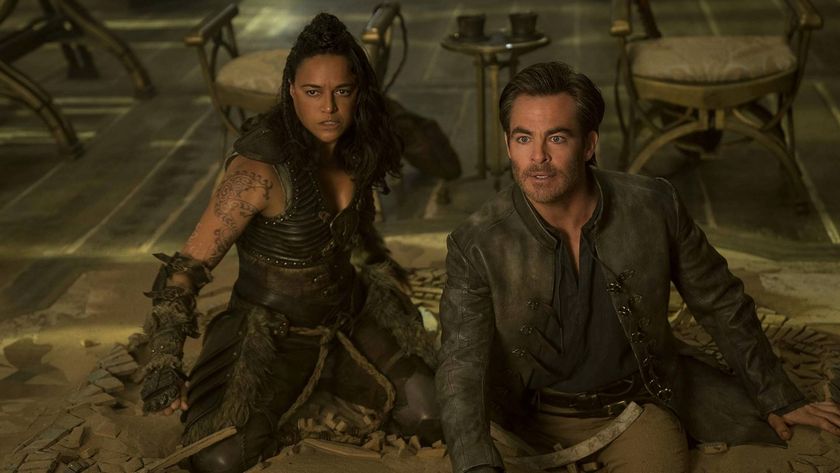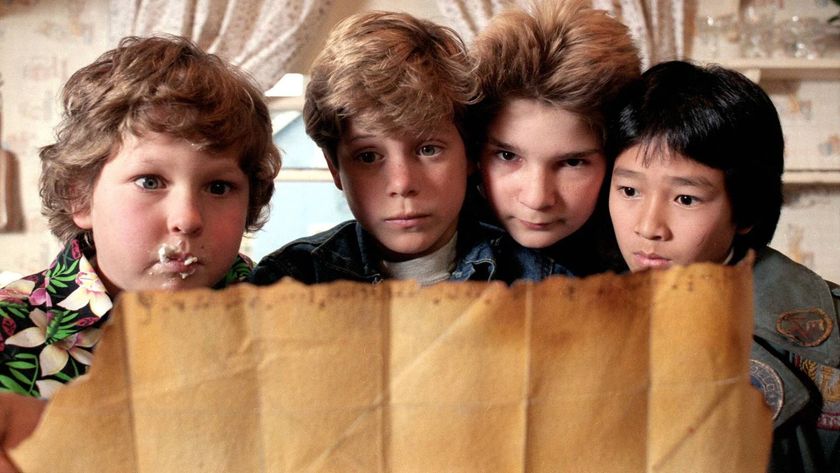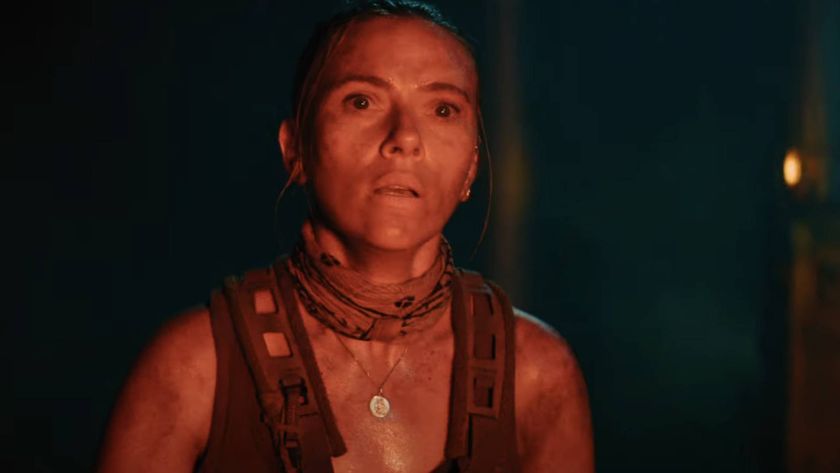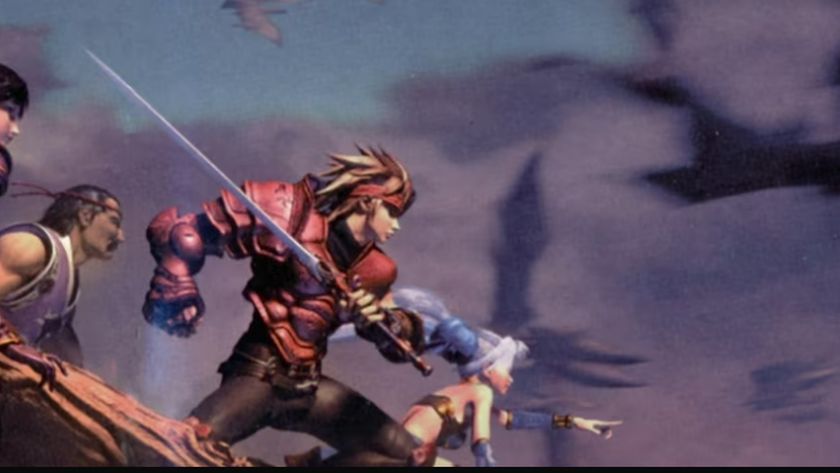Why you can trust 12DOVE
Let's face it: if ever there were a time for Being Charlie Kaufman, it's now. Not since the Tarantino Script Scramble of the early '90s has Hollywood's leftfield flickerati been so enamoured by a single writer's output. So, while QT saw the dust blown off his screenplays for Natural Born Killers, True Romance and From Dusk Till Dawn thanks to Reservoir Dogs' vital bite, the singular Kaufman has enjoyed a similar run after Being John Malkovich sent Hollywood head-lids flapping.
But while the screenplays have been resolutely Kaufmanesque, not all of the movies have worked. Take George Clooney's Confessions Of A Dangerous Mind. Script jittering with Kaufman tics, Clooney's ostentatious direction pretty much sank it - - overegging the style with whisking pans and snapping edits when the raw material was already wild enough.
Not that you'd know it, but Eternal Sunshine director Michel Gondry has already had a crack at Kaufman. A wilfully perverse apeman love quandrangle, Human Nature went straight to DVD and for good reason: it's chaotic, hollow, a stylistic circus baboon. Still, Gondry appears to have learned from his mistakes because this is easily the most emotionally satisfying adap' of Kaufman's inverted universe.
By the way: that's "universe" as in the uncharted inner-space that makes up the human brain. All of Kaufman's scripts have seen him delving into the mists of the subconscious. He doesn't necessarily want to understand it, he just thinks it's a romantic, interesting, ridiculous, rousing, enigmatic, provocative and scary place to be. Given the human brain is a territory without artistic constraints, why not set an entire movie inside there?
That's, more or less, what he's done with Eternal Sunshine. Motored by a Philip K Dick-ish memory conspiracy, the central premise is blissfully simple: abusing the technology of a brain-erasing firm, a spurned lover watches the sequential memories of his ex removed, falls in love with her all over again and tries to reverse the process before there's nothing left of her. In what's billed as "a love story in reverse", the spurned lover is played by Jim Carrey, his ex by Kate Winslet and, through fragmented memory-blasts, we get to see the deterioration of their relationship first, then the bonding, then the flirtations, then, lastly, their first date.
If you've ever caught one of Gondry's music videos, you'll know he has an eye for a good optical illusion (eg: the kaleidoscopic glitterballing of The Chemical Brothers' `Let Forever Be'). And it's during Carrey's head-trips that he really lets rip, infecting his memories with visual traps and dupes: muggy soft-focus, jagged speed-ups, reversed footage... Yet never once does Gondry let the style spin out of control. It serves the story and the fuzzy mood until, come the final reel, the flickers become motifs, become poignant (torchlights!).
'Course, all this visual dash would count for nowt if it weren't for Eternal Sunshine's two leads. Cast against type, Jim Carrey's turn as the introverted Joel is some distance from his usual persona: more moper than mugger, an endearing, fragile, emotionally ghosted sap (although he's still good for a laugh when he's regressing to his childhood and taking a bath in the sink). As for Winslet: in Clementine,a talent capsized by some truly lousy choices, Winslet really has found somebody. A conflicted free spirit chained by latent insecurities (""Drink up!"" she barks at Carrey on their first date. ""It'll make the whole seduction part less repugnant!""), she's a unique character, fully fleshed. And Gondry owes her: she makes the movie live.
As for the supporting cast, no doubt it's a boon to namecheck Mark Ruffalo, Kirsten Dunst and Elijah Wood on the posters, but ultimately their characters remain narrative bystanders. So when a dubious subplot involving Dunst and Tom Wilkinson's egghead arrives unannounced, it stutters your emotional response to Carrey and Winslet's touching, truthful relationship. It's like intercutting, say, Bogart and Bergman's breathy flirtations with footage of Sam polishing his piano. You can take the detail but you don't really need it.
Aside from the futile subplot, Kaufman's latest is a weird, visually woozy rom-com-in-reverse that charms, amuses and moves.
The Total Film team are made up of the finest minds in all of film journalism. They are: Editor Jane Crowther, Deputy Editor Matt Maytum, Reviews Ed Matthew Leyland, News Editor Jordan Farley, and Online Editor Emily Murray. Expect exclusive news, reviews, features, and more from the team behind the smarter movie magazine.













Beloved PS1 JRPG Legend of Dragoon wasn't meant to be a Final Fantasy 7 killer, Super Mario RPG's battle designer just said "I want to make a new RPG"

Assassin’s Creed Shadows Yasuke actor says that Naoe could beat his samurai in a fight: “Especially with that big a** helmet of mine”

Zombicide 2nd Edition review: "Like a zombie flick brought to tabletop"




